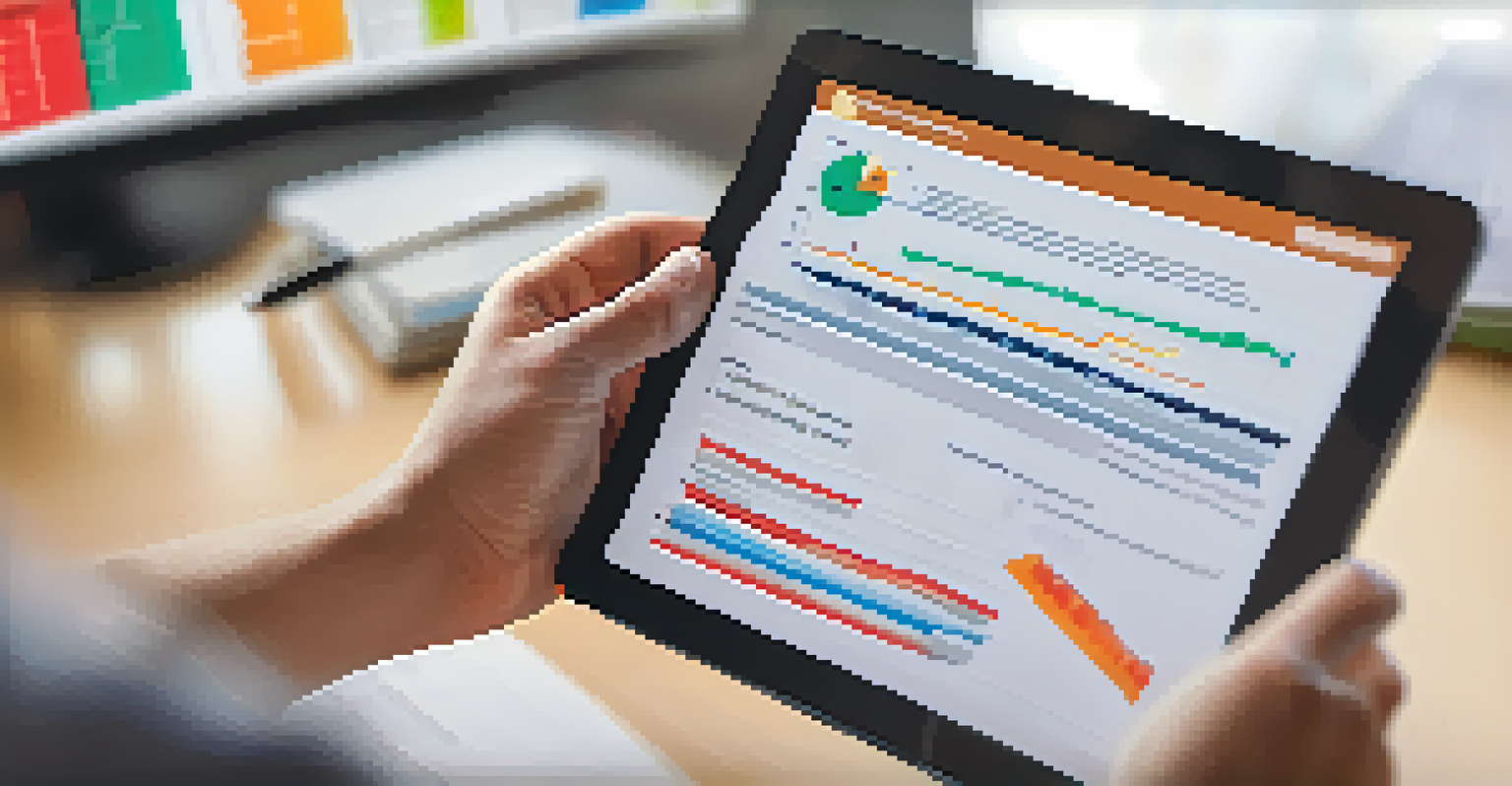The Science Behind Career Assessments and Tools

What Are Career Assessments and Tools?
Career assessments and tools are structured methods designed to help individuals understand their strengths, interests, and values in relation to potential career paths. They often include questionnaires, personality tests, and skills inventories. For example, the Myers-Briggs Type Indicator (MBTI) is a popular tool that categorizes people into distinct personality types, which can guide them in finding suitable careers.
Knowing yourself is the beginning of all wisdom.
These tools are not just for job seekers; they're also beneficial for those looking to change careers or enhance their current job satisfaction. By providing insights into one’s personality and preferences, they help individuals make informed decisions. Imagine trying to choose a new hobby without knowing what you enjoy—career assessments serve as a compass in the often confusing landscape of professional choices.
Ultimately, career assessments and tools aim to align individual attributes with potential job roles, making the journey towards a fulfilling career smoother and more strategic.
The Psychological Foundations of Career Assessments
At their core, career assessments are rooted in psychology, specifically theories of personality and motivation. The renowned psychologist John Holland developed a theory that links personality types to job environments, suggesting that people thrive when their work aligns with their inherent traits. This connection between personality and career satisfaction is a fundamental aspect of many assessments available today.

Moreover, these assessments often utilize established psychological metrics to ensure reliability and validity. For example, tests like the Strong Interest Inventory measure interests and match them with potential careers based on extensive research. By grounding the tools in scientific principles, users can trust that the insights provided are credible and actionable.
Career Assessments Aid Decisions
Career assessments help individuals understand their strengths and interests, guiding them toward suitable career paths.
Understanding the psychological underpinnings can demystify the process, making it easier for individuals to engage with these assessments. It’s like having a well-charted map that leads you through the complex terrain of career possibilities.
Types of Career Assessments Available Today
There is a wide variety of career assessments available, each serving a unique purpose. Some focus on personality traits, like the Enneagram or DISC assessments, while others emphasize interests or skills, such as the Holland Code or the Skills Matcher. Each tool offers a different lens through which individuals can view their career options.
The future depends on what you do today.
For instance, interest inventories often ask you to rate various activities or tasks you enjoy, helping to identify fields that may resonate with you. On the other hand, personality assessments delve deeper into how you interact with others and your work environment. Choosing the right assessment can feel overwhelming, but understanding your primary goal—whether it’s identifying interests, skills, or personality traits—can simplify the selection process.
Remember, not all assessments are created equal. It's vital to choose one that is reputable and aligns with your specific needs to ensure you gain the most accurate and useful insights.
How Career Assessments Work: The Process
The process of taking a career assessment typically involves answering a series of questions or completing interactive tasks. Depending on the tool, this could range from multiple-choice questions to more elaborate situational judgment scenarios. The goal is to gather data that reflects your preferences, strengths, and areas for growth.
Once completed, these assessments analyze your responses and provide feedback, often in the form of a report. This report can highlight compatible career options, suggest areas for further exploration, and even offer strategies for professional development. Think of it like getting a personalized guidebook: it points you in the right direction based on who you are and what you want.
Psychology Behind Assessments
Grounded in psychological theories, career assessments connect personality traits with job satisfaction to enhance decision-making.
Finally, the insights gained from these assessments can serve as a launchpad for discussions with career counselors or mentors, helping you clarify your goals and next steps. Engaging with the results actively can lead to more meaningful career planning and exploration.
Benefits of Using Career Assessments
One of the primary benefits of career assessments is the clarity they provide in navigating career choices. By understanding your strengths and preferences, you can make informed decisions that align with your personal and professional goals. This clarity can be particularly valuable during transitional phases, such as graduating from college or shifting to a new industry.
Additionally, career assessments can boost confidence by reaffirming your abilities and potential. When you receive feedback that aligns with your self-perception, it can empower you to pursue paths you may have doubted. Just like a coach cheering you on, these tools can motivate you to take bold steps in your career.
Finally, utilizing career assessments can enhance your job satisfaction and performance. When you’re in a role that fits your skills and interests, you’re more likely to be engaged and productive, which ultimately benefits both you and your employer.
Limitations of Career Assessments
While career assessments provide valuable insights, they are not without limitations. One major caveat is that these tools are only as good as the information you provide. If you answer questions untruthfully or without reflection, the results may not accurately represent your true self. It’s essential to approach these assessments with honesty and openness for the best outcomes.
Moreover, career assessments can sometimes oversimplify complex human experiences and identities. They may classify you into a specific category, but people are multifaceted, and careers often require a blend of skills and interests. Think of it as a puzzle; while each piece is important, the whole picture is what truly counts.
Limitations to Consider
While valuable, career assessments have limitations, including reliance on honest responses and the need for broader contextual considerations.
Lastly, relying solely on assessments without considering external factors, such as job market trends or personal circumstances, can lead to misguided decisions. Career assessments should be viewed as one tool among many, helping you gather information rather than dictating your path.
The Future of Career Assessments and Tools
As technology continues to evolve, so do career assessments and tools. We are seeing a rise in digital platforms that offer interactive and personalized experiences, making assessments more accessible than ever. For instance, some tools now incorporate AI to analyze responses and provide real-time feedback, further enhancing the user experience.
Moreover, the growing emphasis on diversity and inclusion is shaping how these assessments are developed. There’s an increasing awareness of the need to create tools that are not only reliable but also culturally sensitive and relevant to a diverse workforce. This evolution ensures that career assessments can cater to a broader audience and reflect the complexities of modern careers.

As we look ahead, we can anticipate even more innovative approaches to career assessments, which will likely include gamified experiences and real-world simulations. These advancements promise to make the process of discovering your career path not only informative but also enjoyable.